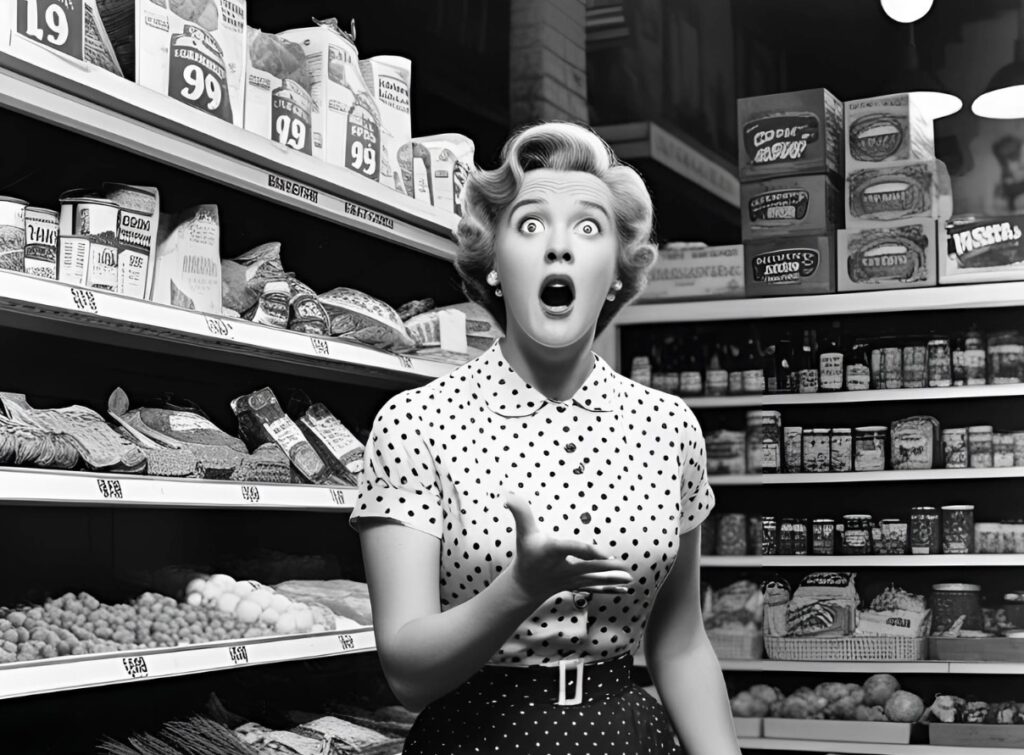Tariffs will fail if wages don’t rise
Americans – including 80% of those who support Donald J. Trump – will consider his tariff moves a failure before the end of 2025 if they remain unchanged. Democrats generally hate Trump; for Republicans it will be disappointment.
Why? Over the past 60 years, average wages have gone down, but so has the price of many consumer goods – ones shipped to the USA from all over the world. With sky-high tariffs, prices will go up but, but without a wage increase for the working class, life will grow too expensive for many striving to “make America great again.”
In the 1960s (yeah, yeah, I’m old) my father bought TVs, washers and dryers at “Smith’s Appliances,” a family-owned store in downtown Carlisle, Pa. We bought shoes at Dutrey’s, and my grandmother owned “Long’s Ladies Shop,” which did a bustling business selling bras, girdles and dresses. Most products were made in America. If you saw any roll-your-eyes cheap stuff elsewhere, it usually had “Made in Japan” stamped on it.
Trump wants to recreate this idyllic downtown world but forgets that globalization slowly gave Americans access to cheap clothes, appliances and virtually everything else. Forget for a moment whether that’s a good or bad thing – it’s still a current thing. People know how “rich” they feel after they pay the bills. If prices go up and stay there, the other part of the equation – higher pay for the working class (and support for unions) – isn’t on the president’s radar.
The move from downtowns to malls was a seismic shift, as much as the change from malls to Amazon. But times change, and one day, a K-Mart came to Camp Hill, about a 20-minute drive from Carlisle. Prices were cheap. It was part of a new-fangled shopping center. Parking was free, close, and you could walk to other stores without getting wet. Ardent shoppers felt they went to heaven. While habits change slowly, store owners heard the death knell for downtown shopping districts.
Today, Americans expect lower prices, relatively speaking. They don’t know this 1960s America. K-Mart couldn’t keep up with Walmart, and Walmart can’t keep up with Dollar Tree.
The math is pretty simple: Higher prices + lower working-class wages = more poverty lifestyles. If that happens, all but the most rabid Trump supporters will turn on him when they can’t afford food and healthcare, and, as the Trumpers turn, so does Trump’s supporting cast – the lawmakers in Congress who need Republican support.
Trump could, of course, back down on his bizarrely high tariffs. No one really believed his threats at first, but he’s all about leverage in business deals, and that “not believing” could have sparked the man to roll out high ones as a way to say, “See? I wasn’t kidding.” Perhaps he created leverage so, country by country, a reasonable negotiated tariff will eventually unfurl. If so, his current off-the-charts tariffs might even yield advantages in negotiations.
But maybe not. Wall Street never took the tariff threats seriously, nor did world nations, who may be more obstinate going forward out of national pride. Yet here we are. At this point, assuming Trump will use his newly created leverage to negotiate reasonable-yet-better deals falls into the “fool me once, shame on you; fool me twice, shame on me” category.
© 2025 SmithTakes.com
